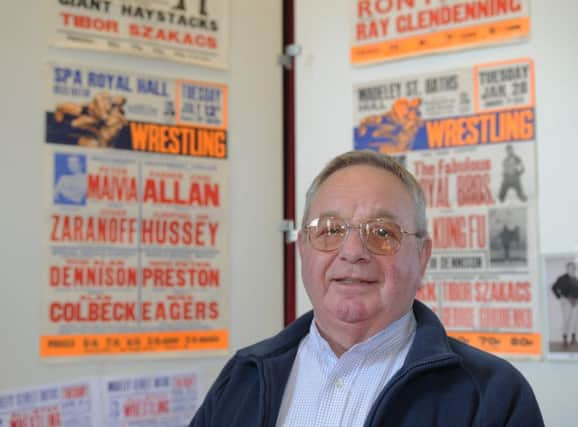Peter Preston, wrestler


Preston was a stonemason from Birkenshaw, near Bradford, when he turned to the professional ring. Assigned to fight McManus at London’s Lime Grove baths in January 1967, he was to take the first fall in the second round but allow the champion to equalise and execute the winning pin in the fourth.
It all went to schedule until McManus attempted the equaliser, at which point Preston decided he would dig his heels in.
Advertisement
Hide AdAdvertisement
Hide AdAn appeal to the referee to have Preston disqualified went unheeded, and both McManus and the promoters were reportedly furious at the unplanned ending.
It was an era in which professional wrestling was arranged, if not exactly fixed, to extract the maximum entertainment value for TV viewers, most of whom had their particular favourites.
McManus was near top of that list and as his punishment for humiliating him, Preston was denied further TV exposure for the next two years.
He continued to wrestle, however, at venues up and down the country, and did not finally retire from the sport until the early 1980s.
Advertisement
Hide AdAdvertisement
Hide AdHis feud with McManus, who considered he had been double-crossed on that Saturday afternoon in 1967, continued for much of that time, though the two did eventually shake hands.
Preston had come to wrestling having played rugby for Dewsbury Celtic. Beginning as an amateur fighter, he reached the northern area championships and signed eventually for the Bradford promoter Norman Morrell, who championed his career after the McManus incident.
During the early 1960s, he travelled to fight at venues as far as the constraints of the construction business he was running back home would allow.
It was on his home turf that his popularity was at its highest. On one occasion he arrived for a fixture at Bradford’s St George’s Hall to find his fans queuing around the block.
Advertisement
Hide AdAdvertisement
Hide AdHis career took a knock when, at 30, he was diagnosed with diabetes, and his performance in the ring began to suffer, though he was able to manage his symptoms well enough to remain a force in the sport.
In 2011 he took part in a wrestlers’ reunion event at the Oulton Institute in Leeds, at which he and former adversaries like Johnny Saint and Tony ‘Banger’ Walsh exchanged stories.
He and his late wife, Margaret, had a daughter, Carol, who survives him along with five granddaughters and four great grandchildren.